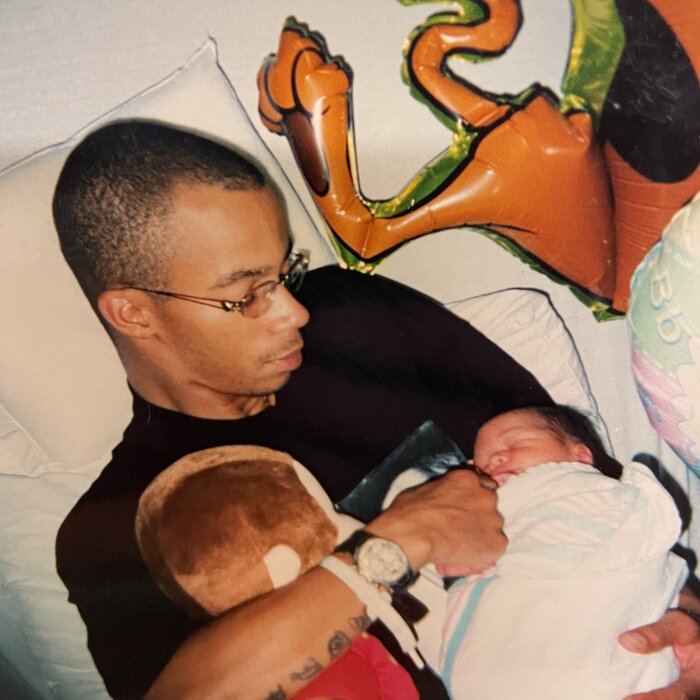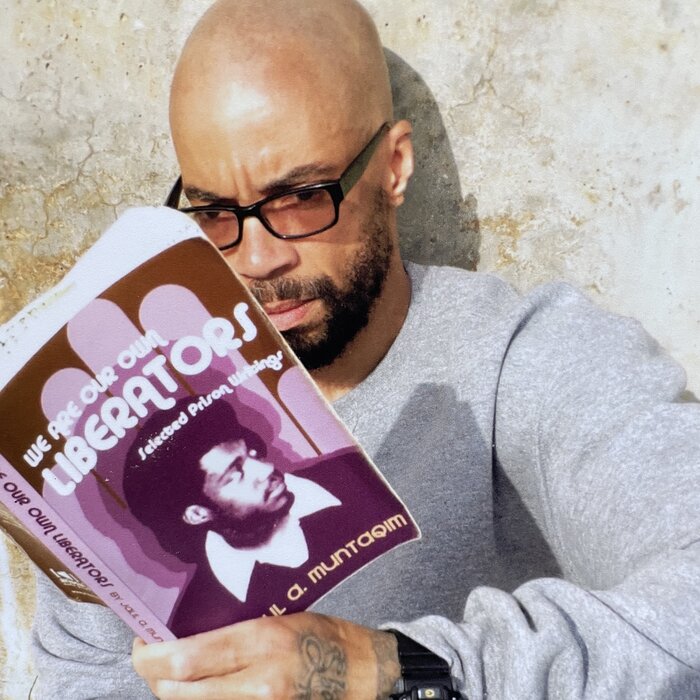During my son’s first birthday celebration, I was seated in a loathsome, cramped and filthy holding cell in the D.C. Superior Court, on trial to fight charges of armed kidnapping and first-degree murder of a street associate. I can vaguely recall hearing the lead attorney appointed to my case by the Public Defenders Service arguing with my judge over a motion filed on my behalf to introduce evidence pointing to a motive by a third party to commit the crimes for which I was being tried. The judge denied the motion, stating it would only “confuse the jury.”
“Confusion”? I can only imagine that’s exactly what my two oldest children (by choice and marriage) felt. They had gone to school in the morning cloaked in the comfort of knowing that I was at home and looking after them. When they returned home, however, they discovered I was missing, with no guarantee of ever returning home.
One afternoon later during my trial, I remembered receiving a prison phone call, prior to my arrest, from my oldest children’s biological father, a West Indian brother. He was about to be deported, and he expressed his deep appreciation for my care of his kids, including always accepting his collect calls. Now all I could think was, “Who will look after his/our children?”
I looked around the packed court room, instinctively in search of the one person who had provided consistent spiritual and emotional support throughout my entanglements with the criminal-legal system: my mother. For work-related reasons, she was unable to attend that day. However, surprisingly, my father was seated directly behind me, with the two youngest of my siblings and several of my street associates. That was the first time my father was present at any of my court proceedings. Despite his absence during much of my childhood, I couldn’t help but be proud of him in that moment. He had achieved what many people in the ‘hood consider impossible: the defeat of a 30-plus-year heroin addiction. His presence, six-years-sober, was a testament to what is possible. It gave me a fleeting glimpse of the kind of father-son relationship we both could have invested in, managed and protected if we had made radically different lifestyle choices earlier in our lives.
The block from which I emerged
My namesake, Darnell Vincent Herndon Sr., was affectionately called Sonny Boy by everyone in our large Chocolate City family. Several generations removed from the rural, red-clay back roads of the Deep South, he was a true “Native Son” of the District of Columbia. His death several years later—on Sept. 30, 2013—forced me to acknowledge how little I knew of my family history. I have only fragments of second-hand stories about my father’s upbringing that have been passed down to me by other relatives.
Born in 1950 to a single mother, my father endured the double pinch of poverty and blatant racism when he was coming of age in our nation’s capital. He survived long enough to witness the city experience several epochal transformations, upheavals and downward spirals – ranging from the decline of the Jim Crow era, to the displacement of Black residents from the prized Georgetown section of the District (a former trade center for slaves and tobacco), to the 1968 riots that followed the assassination of MLK and incinerated large stretches of town, to the PCP and crack epidemic (and the associated gun violence) that led to the infamous War on Drugs, the rise of mass incarceration and neighborhood gentrification.
There was one constant throughout these stages, however: the large number of youths living in all-consuming poverty. Both my father and I—along with many others—convinced ourselves that we could somehow beat the odds and the system by cleverly maneuvering through the criminal underworld and forging our own exit route out of poverty.
For several years, my father attempted to keep up this impractical double life, hustling in the streets while trying to be a self-respecting Black man, father and husband. But the tug of war caused him to lose his full-time employment with the Pepco electric company and fumble two loving relationships, both producing children who needed him. Some people use drugs to celebrate and others abuse them to self-medicate. My father was one of the latter.
A child can be in the company of their father and not really share his presence. That was true for me when I was growing up. He didn’t train and guide me into manhood. It was more of a corrective relationship—“do as I say, not as I do.” His addiction didn’t allow him to take the time to focus one-on-one to explain, instruct or mentor. However, although it was seriously dysfunctional, I at least lived in a two-parent household (that is, until my parents split when I was 11). My mother worked for the Bureau of Alcohol, Tobacco and Firearms while my father hung at home, cooking, chaperoning and even signing us up for normal childhood activities like swimming lessons. But as soon as his daddy day care duties were done, he got high.
What legacy will I pass to my own son?
My father wasn’t exposed to healthy parenting skills when he was growing up; therefore, he had nothing in that department to pass down to me. In turn, I had little to offer my own son. And once I found myself in prison, it was nearly impossible to be an effective parent from the inside, while being closely monitored in a penitentiary visiting room.
Still, the most memorable moment in my adult life as a free man was the birth of my tall, tiger-eyed son Tristen Zayd on August 9, 2004. As the doctor performed a cesarean section, I held the hand of my then wife and made inane small talk, attempting to distract her from what must have felt like she was being torn asunder. Then the doctor nudged me with his arm, directing my attention to her belly as he lifted my healthy, first-born child from her womb. I immediately began taking pictures with a disposable, gift shop camera. The rest of the day had a festive feel to it; my entire family packed into the hospital room, all smiles and good cheer.

No one could have convinced me then that in just four months, I would be arrested. And now, 17 years later, I can only reminisce while studying my son’s features in pictures taped into a tattered photo album. I was incarcerated before my son and I could even begin to create shared memories. We wouldn’t recognize one another’s laughter if we heard it over the phone, both because we don’t talk much, and when we do, humor eludes us. In the beginning, I thought we were starting to build rapport, but then he just shut down. I don’t know why.
I had harbored such high expectations for our relationship. I think every parent who feels that the bond with their own mother or father had been lacking feels compelled to “do it right” for their own kids. But the gangster lifestyle I adopted to generate capital for my family, and a criminal-legal system that works against true rehabilitation, has caused me to forfeit my role as parent. I am haunted by the fact that I haven’t been there to connect our family’s historical and cultural dots for my biracial son. I haven’t been able to teach him, or my stepchildren, that the American concept of race is a fiction concocted by white men like Thomas Jefferson and James Madison. I haven’t been able to teach my son about his great grandfather Grant Cunninhgam Sr., a biracial man, World War II vet, father of 14 and D.C. cab driver who identified as a Black man, even though his skin color, facial features and hair texture allowed him to pass as white. (Depending on which family historian you listen to, he was either the product of a violent rape or an interracial love affair.)
Every day, I battle with the shame of not being able to provide for my son.
Every day, I battle with the shame of not setting a better example for my children.
With every passing birthday, Christmas, Kwanzaa and Easter, I feel the stinging shame of not being there to spend quality time with my kids.
Earlier this year, my son graduated from high school, just the third male carrying the Herndon last name to do so. When he briefly spoke to me and I congratulated him, I asked about his plans and suggested he consider university. He coolly replied, “Dad, there’s no money for college. I’m gonna get a job.” At that moment, the weight of my former criminal thinking and the length of my conviction felt as it was pulling me deeper and deeper into the muck of regret.
My son’s answer to my inquiry made me think of some early Jay-Z rap lyrics from a classic “B-side” single titled “Soon You’ll Understand.” He raps:
Who am I kiddin’? I call myself easin’ the load
I made the load heavy, I need money for commissary
Try to understand, please.




